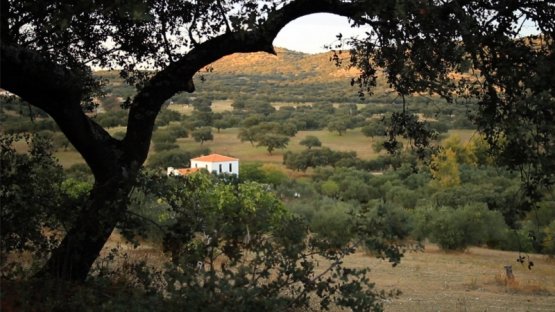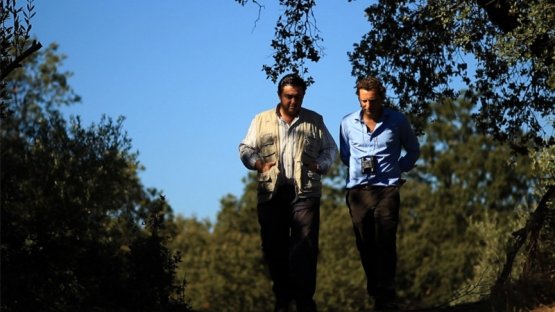We’re in Pallarés, a small village in Extremadura, Spain. 400 people, no demographic boom to be expected. Over here, however, in the dehesa that characterises this region (you can read about it here), thousands of geese run free. They eat what they find on the ground, they fly, they explore the surroundings and most of all they return to where they came from.
It is in that place that they will be slaughtered, to extract an excellent foie gras. This, however, without ever using forced feeding, not even once, and without depriving them of their freedom (so should they decide to escape... nothing or no-one could prevent them to do so). All this takes place at Pateria de Sousa, run by Eduardo Sousa, who’s only task was to continue a centennial tradition.
Indeed, this story begins in 1812, when Martin, Eduardo’s grandfather, arrived to Extremadura from Denmark. At the time, this was one of the less inhabited and wildest regions in Spain, and it still is. Grandfather Martin soon noticed that during the periodical migrations, many geese and ducks would fly over his property; they were exactly on the migratory route of these birds.
What he didn’t expect, however, was that some of the geese would start to stop in his fields, attracted by the natural marshland in this region, by the mild climate, the great quantity of food available in this land. Foie gras, it can be easily imagined, is not an invention of man. So by observing these free geese, the Sousa noticed how, in order to get ready to the next migration, these birds (geese but also ducks) would eat large quantities of grass and acorns, in order to accumulate a big fat provision that they would then assimilate during the long journey (between 5K and 10K km). The consequent fatty liver is therefore absolutely natural.

A photo of the fields at Pateria de Sousa
For many years the
Sousa family produced foie gras only for home consumption, or as a gift for their dearest friends. It was
Eduardo who decided, once he took over the farm, that the moment had come for the world to learn about their secret. The difficulty in this special balance is that even today, despite having a commercial goal in mind,
Eduardo Sousa can by no means deprive the geese of their free will.
Indeed, the natural psychological process that leads migratory birds to overfeed themselves before flying, stops as soon as the animal perceives it is not free. What
Eduardo can do is to enrich the food offer as much as possible, on top of what is already present on the ground: acorns, grass, lupin beans but also olives, figs, organic corn imported from France.
Around 10% of the geese, every year, is lost: some migrate, some are eaten by predatory birds. This is the fee
Sousa needs to pay to nature, which allows him to produce the only truly ethical
foie gras in the world. For the same reason, he cannot foresee the year’s production (which is always strictly seasonal, only in winter), because a particularly warm winter can significantly delay the geese’s fattening, preventing sales in time for Christmas.

Eduardo Sousa together with his French partner Diego Labourdette
Sales are limited nonetheless. On the
company’s official website -
Eduardo Sousa founded this company with French ecologist
Diego Labourdette - it is possible to reserve the
foie gras: however, it could be necessary to wait for two seasons for its delivery. Each year, around 400kg of fat liver are produced and, despite the decisively high price (little less than a euro per gram...) it is sold out even before it is produced, by important clients such as the Spanish Royal Family or the White House residents.
Or
Dan Barber. The chef and owner of the
Blue Hill Farm, thanks to which he’s been always promoting an enlightened interpretation of sustainable restaurant, came across this
foie gras a few years ago and fell in love with it. He spoke about it in 2008 during a
TED conference, and again in 2011 during
an interview for radio programme
This American Life, when he told about his visits to the
Sousa farm, the extraordinary and unique quality of this product – to which no aroma is added – and his unlucky attempts, for now, at imitating the work of the
Pateria.